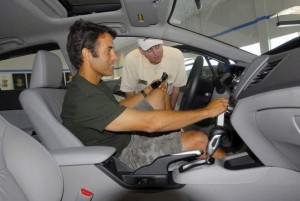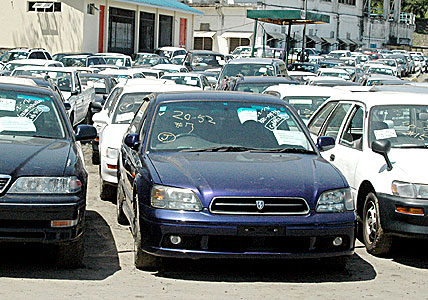Earthquake, tsunami have ripple effect on Japanese car inventories
May 3rd, 2011 | By Angela | Category: Media Release With production of cars and parts slowed by the March 11 earthquake and tsunami, dealers who sell Japanese vehicles may face temporary inventory shortages this spring.
With production of cars and parts slowed by the March 11 earthquake and tsunami, dealers who sell Japanese vehicles may face temporary inventory shortages this spring.
“Right when it gets bad is when it’ll be getting back on track,” sales manager Justin Lang of Toyota of Melbourne said. “By the end of May, we should be back on track with no problems.”
Toyota’s global car production, disrupted by parts shortages, may not return to normal until November or December, the company said Friday. Car production resumed last week at all Toyota plants in Japan for the first time since the quake, but the factories are running at half capacity due to the parts shortages. Japanese manufacturers are also grappling with power shortages.
“It’s going to short us a bit,” Lang said. “Fortunately, they had a lot of vehicles that were in storage.”
To cope with the supply interruption, Toyota of Melbourne will try to sell more used cars and swap cars with other dealers to satisfy customers requests for style and color.
Buyers may see higher prices as a result of the limited inventory.
“We just have fewer incentives due to the kink in the production,” Lang said.
At Honda, production at plants in the U.S., Canada and Britain has been slowed due to parts shortages.
“If you’re just missing one part you can’t build a car. We have a pretty good selection on hand but the pipeline is thinning out into the next 60 days,” said Bob Greene, general manager of Southeastern Honda in Palm Bay. “We’re not going to run out of the cars, but the selection of trim levels and color will diminish.”
Dealerships in general will try to acquire more late-model used cars to sell. However, prices for 2- to 5-year-old, fuel-friendly compacts such as the Honda Civic, Toyota Corolla and Ford Focus increased 11 percent in March over February, the National Automobile Dealers Association said. Used-car prices overall jumped 5 percent.
“Right now, trade-ins are worth a lot of money to us,” Greene said.
The shortage of automobiles combined with the improvement of the economy will work against auto shoppers who had returned to car lots after staying away during the recession.
“As our inventories diminish, then dealers won’t discount them as much,” Greene said.

Related posts:
